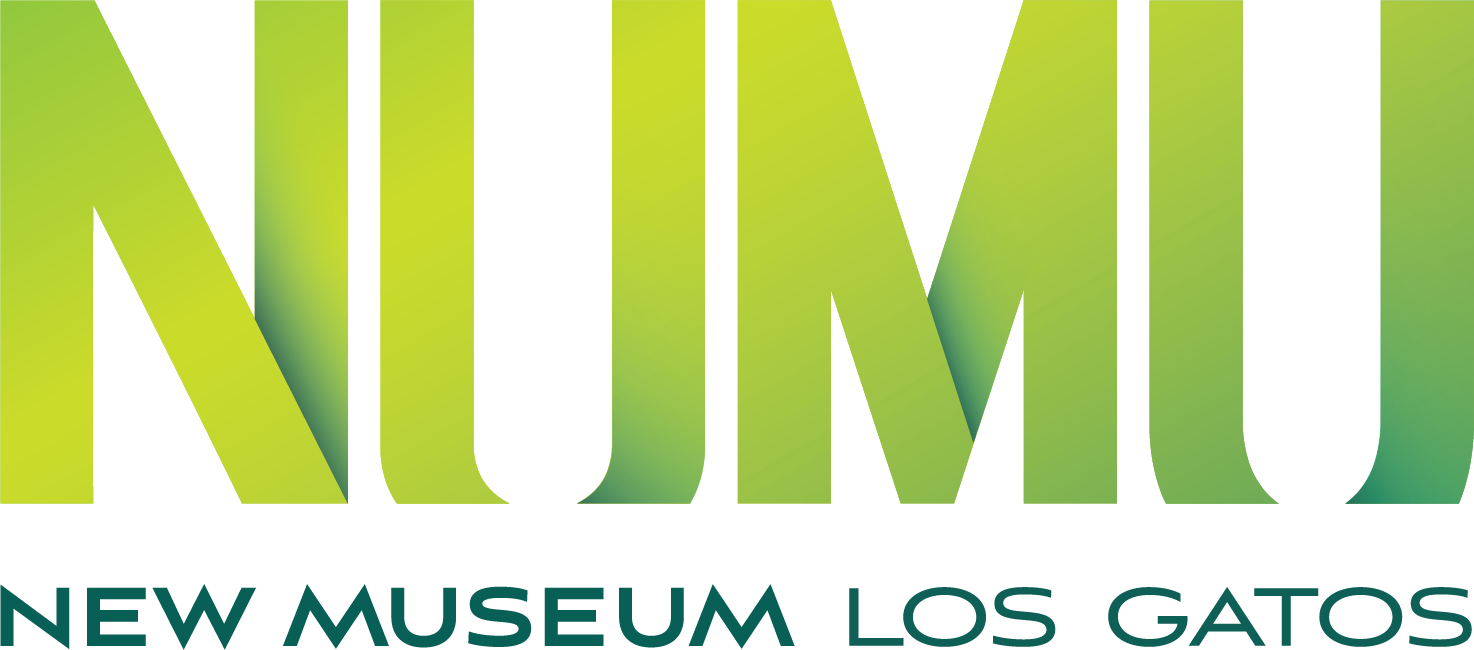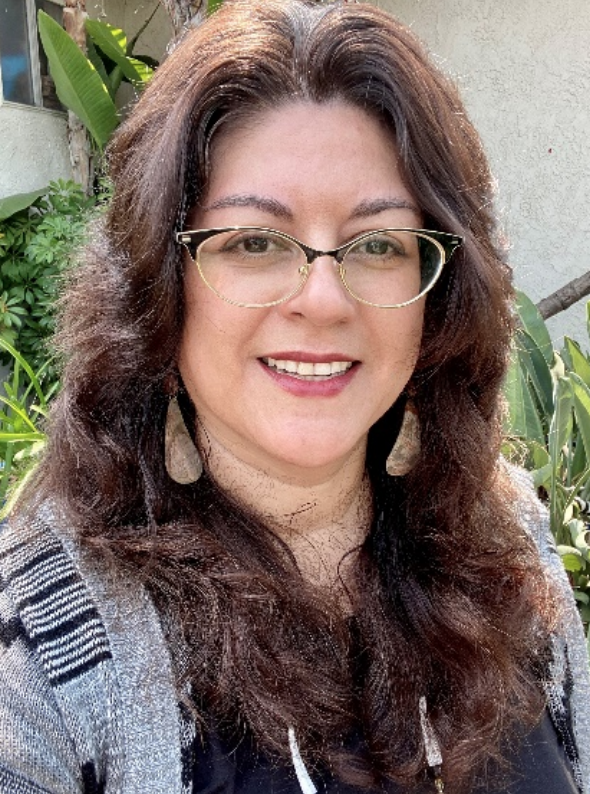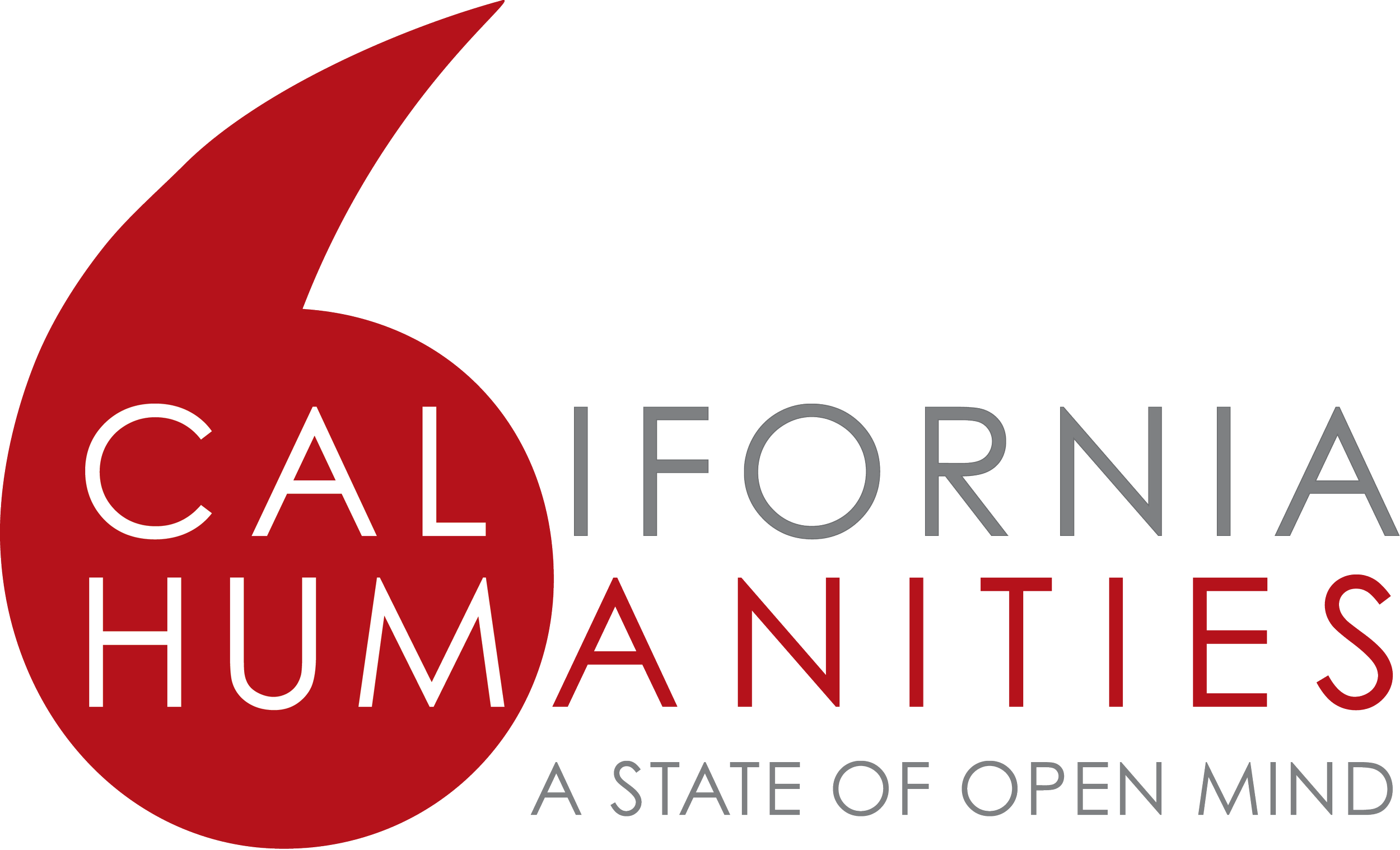For decades the Muwekma Ohlone Tribe has been working as stewards to protect their ancestral heritage sites throughout the San Francisco Bay Area. What role has archeology and anthropology played in revealing the 10,000 year history of Santa Clara County and the people indigenous to it, the ancestors of the Muwekma Ohlone? Hear from Monica V. Arellano, Vice Chairwoman of the Muwekma Ohlone Tribal Council and Most Likely Descendent Representative, Gloria E. Arellano-Gomez, former council member and Secretary for the Muwekma Ohlone Tribal Council, and Alan Leventhal, Lecturer Emeritus of Anthropology at SJSU and Muwekma Tribal Archeologist, providing pre-contact and historical context on the history and heritage of the Muwekma Ohlone Tribe. Scholarly collaborations with the faculty and students from the Department of Anthropology at San Jose State University (SJSU) will be presented by Jan English-Lueck, Professor of Anthropology, and her students, including Dr. Lee Panich & Gustavo Flores, as they discuss meaningful relationships and how the practice of anthropology and archeology has contributed to the education of the general public by supporting the Muwekma Ohlone Tribe in the development of the exhibition Reclamation.
PROGRAM DETAILS
Date: Thursday, April 20, 2023 | 5 - 6 PM PT
Location: Virtual on Zoom
Tickets: FREE with $10 Suggested Donation
Meet the Panelists
Monica V. Arellano is presently serving as the Tribal Vice Chairwoman for the Muwekma Ohlone Tribe of the San Francisco Bay Area. She also is the Vice President of Muwekma Ohlone Tribe, Inc., the Tribe’s Cultural Resources Management firm. Additionally, Monica represents the Tribe on the State of California’s Native American Heritage Commission’s Most Like Descendant list, when ancestral heritage sites are encountered during construction projects. Monica protects the Tribe’s aboriginal and religious rights while caring for the proper and respectful treatment of their ancestral remains and cultural artifacts. She is also co-author on many archaeological reports regarding the Tribe’s ancestral heritage sites. Monica is one of the founding Members and Co-Chair of the Muwekma Ohlone Tribe Language Committee and is proactive in restoring her Tribe’s Muwekma Ohlone Language, while also working on interpretive museum displays and various publications about her Tribe’s 10,000-year history and heritage. More recently, Monica has been appointed as the Vice President for the Muwekma Ohlone Preservation Foundation, the Tribe’s Land Trust. She is helping the Tribe access land and reconnect Tribal members to the land and indigenous knowledge through stewardship. She has the authority and privilege to issue Land Acknowledgments and public Welcoming Declarations to Muwekma’s Ancestral Land on behalf of the Muwekma Ohlone Tribe. Monica also has the honor of giving Opening Blessings in the Tribe’s native Chochenyo language. All of Monica’s paternal Ohlone ancestors were missionized into the Mission San Jose and Mission Dolores. Her lineage is descended from her (four-greats)- grandmother Efrena Quennatole (born 1797) who was of the Carquin Ohlone/Napian Tribe (Northern San Francisco Bay) and her (four-greats)-grandfather, Liberato Culpecse (born 1787), baptized at Mission Dolores in 1801 and who was of the Jalquin/Yrgin Ohlone Tribe of the greater Hayward/Castro Valley/San Lorenzo/San Leandro and south Oakland area. Monica’s great grandmother was Mercedes Marine. Mercedes was born in 1895 on the Alisal Rancheria in Pleasanton, CA. She was baptized at Mission San Jose and buried at the Ohlone Cemetery in Fremont, CA. Mercedes’ godparents were Capitan Jose Antonio (Chief) and his wife Jacoba, a Máyyin (female leader) of the Previously Federally Recognized Verona Band of Alameda County, whose descendants are currently enrolled in the Muwekma Ohlone Tribe of the San Francisco Bay Area. Monica’s grandfather, Albert Marine Arellano, was born in 1909 on the Alisal Rancheria and was baptized at Mission San Jose. As a young married man, Albert later built his home for his family in Russell City, CA which is now Hayward, Jalquin/Yrgin Ancestral Muwekma Ohlone Territory. Monica’s father, Joel Cota Arellano, Sr. (recently deceased), was a respected Tribal Elder who served as the First Chairman of the Muwekma Elder’s Council. Monica lives in Castro Valley, Jalquin/Yrgin Tribal territory, with her son Lucas Tuyhešte. It was important for Monica to give her son a Chochenyo name. She chose Tuyhešte, which means “Strong” in their native Chochenyo language. Monica’s main focus is raising her son, who is her source of inspiration in the preservation of the Muwekma Ohlone Tribe’s language, culture, and heritage. Aho!
Gloria E. Arellano-Gomez is a member of the Muwekma Ohlone Tribe of the San Francisco Bay Area. Gloria is a Former Council Member and Secretary for the Muwekma Ohlone Tribal Council. Her Tribe is currently seeking restoration as a Federally Recognized Tribe. As one of the speakers of her Tribe’s Muwekma Ohlone Chochenyo language, Gloria proudly sits on the Muwekma Ohlone Tribe Language Committee and is proactive in the revitalization and utilization of their native Chochenyo language.
All of Gloria’s paternal Ohlone ancestors were missionized into Mission San Jose and Mission Dolores. Her lineage is descended from her (four-greats)-grandmother Efrena Quennatole (born 1797) who was of the Karkin Ohlone/Napian Tribe (Northern San Francisco Bay) and her (four-greats)-grandfather, Liberato Culpecse (born 1787), baptized at Mission Dolores and who was of the Jalquin Ohlone Tribe of the greater Hayward/San Lorenzo/San Leandro and south Oakland area. Gloria’s great grandmother was Mercedes Marine. Mercedes was born in 1895 on the Alisal Rancheria in Pleasanton, CA. She was baptized at Mission San Jose and buried at the Ohlone Cemetery in Fremont, CA. Mercedes’ godparents were Capitan Jose Antonio (Chief) and his wife Jacoba, a Máyyin (female leader) of the Previous Federally Recognized Verona Band of Alameda County, whose descendants are currently enrolled in the Muwekma Ohlone Tribe of the San Francisco Bay Area. Gloria’s grandfather, Albert Marine Arellano, was born in 1909 and baptized at Mission San Jose. He and his family lived in Russell City, CA which is now the city of Hayward, Jalquin/Yrgin Ancestral Muwekma Ohlone Territory. Gloria’s father, Joel C. Arellano, Sr. (recently deceased), was a respected Elder in the Muwekma Ohlone Tribe and served as Chairman of the Muwekma Elder’s Council. Gloria has the honor of giving Opening Blessings and Land Acknowledgments to her ancestral homeland, at events throughout the Bay Area. She also has the honor of saying prayers in her native Muwekma Ohlone Chochenyo language, at many of those events. Gloria lives in San Lorenzov Jalquin/Yrgin Ancestral Muwekma Ohlone Territory, with her husband Jorge and their two daughters, Isabella ’Amne and Georgiana Kormey. As a speaker of Chochenyo, she thought that it was meaningful to give her daughters Chochenyo names. Her eldest daughter’s middle name is ’Amne which means “rain” in Chochenyo, and her youngest daughter’s middle name is Kormey, which means “moon” in Chochenyo. Gloria is a devoted wife and mother who keeps busy with her family responsibilities. She and her family are devoted to their Tribe’s cause and enjoy helping in the Tribe’s information and exhibit booth, at events throughout the Bay Area. Gloria’s daughters are her source of inspiration in the important work that she does to preserve her Muwekma Ohlone Tribe’s language, culture, and heritage. Aho!
Alan Leventhal is a trained archaeologist/anthropologist/ethnohistorian.
Alan completed his Master’s Degree at SJSU in Social Sciences with an emphasis in Anthropology/Archaeology. His thesis is titled A Reinterpretation of Some Bay Area Shellmound Sites: A View from the Mortuary Complex from CA-ALA-329, the Ryan Mound. He is also the author and co-author of numerous publications on Bay Area prehistory, California Indian ethnohistory, ancient and modern Native American DNA, that include analyzes of stone tool assemblages spanning 12,000 years of human history in the S.F. Bay Area.
He has also worked with the Muwekma Ohlone Tribal leadership on the Indian Neophyte Cemetery at the Third Mission Santa Clara (1781-1818), and more recently on several Pre-Contact to Proto-Contact Period ancestral Muwekma Ohlone cemetery sites in Sunol and downtown San Jose.
On July 1, 2019, Alan retired from SJSU where he worked on the administrative staff in the Office of the Dean, College of Social Sciences, and taught as a lecturer in the Anthropology Department about contemporary Native American Issues, and topics on advanced methods and theory in archaeology. He has lectured and conducted archaeological investigations in New York, Georgia, Nevada, and California.
For the past 43 years, he has worked with the Muwekma Ohlone Tribe of the San Francisco Bay Region as a tribal ethnohistorian and senior archaeologist. He has also researched tribal genealogies through the federal censuses and mission records, as well as on the history of California Indian military service spanning all the major theaters from WWI through the recent conflict in Iraq and Afghanistan.
Mr. Leventhal had also worked as a volunteer (1992-1998) on the Congressionally created (HR 2144) Advisory Council on California Indian Policy’s Federal Recognition Task Force, and was one of the few advocates for the Previously Federally Recognized Tribes in California.
Mr. Leventhal has also worked closely with other tribes throughout California as they seek federal restoration and reaffirmation of their tribal status. Alan has also served as an ethnohistorian and archaeologist for two other previously Federally Recognized tribes: Amah–Mutsun Tribal Band of Costanoan Indians centered around Mission San Juan Bautista (since 1989), and Ohlone-Costanoan/Esselen Nation centered around Mission San Carlos in Monterey (since 1992).
Since 2005, he continues to serve on the American Indian Heritage Celebration planning committee in San Jose. More recently, he has consulted with several Bay Area museums including exhibitions at the Oakland Museum, Los Alto Historical Museum, New Museum Los Gatos (NUMU), Campbell Historical Museum, SFPUC Watershed Center, Museum on Main in Pleasanton, and the de Saisett Museum at Santa Clara University.
Dr. Jan English-Lueck is a Professor of Anthropology at San Jose State University, and the author of several books on Silicon Valley Cultures, including Cultures@SiliconValley (2017). She has worked with California Native peoples in her five decades of applied anthropology. In 2017, she worked with NUMU on the Cement Prairies exhibition and continues to collaborate with them on various projects. She is currently working with Mosaic America to complete the Mosaic Atlas of cultural arts in the Bay Area.
Dr. Lee Panich is the chair of the Anthropology Department at Santa Clara University. In his research, he employs a combination of archaeological, ethnographic, and archival data to examine the long-term entanglements between California’s Indigenous societies and colonial institutions, particularly the Spanish mission system. He has conducted investigations of Native life at Mission Santa Clara and Mission San Jose, as well as at Mission Santa Catalina in Baja California, Mexico. His book, Narratives of Persistence (2020), explores the long-term histories of Ohlone people in the San Francisco Bay Area. His most recent projects center on collaborations with the Muwekma Ohlone Tribe to tell a fuller and more inclusive history of Mission Santa Clara, on the SCU campus.
Gustavo Flores is an anthropologist/archaeologist with an interest in applying anthropological methods to contribute to the understanding of the past of indigenous peoples. He has done archaeological work in Northern California and Belize and has been conducting research in San Francisco Bay Area archaeological sites with the Bay Area Cultural Landscape Research Group, a collaborative effort between researchers at Foothill College, Stanford University, and the Midpeninsula Regional Open Space District. Aside from archaeological methods, he conducts paleographic research, where he translates and contextualizes primary sources to bring into light the ways in which Bay Area Native Americans navigated the web of interactions of Spanish and later American colonial institutions. He is currently collaborating on a book project on understanding California’s secularization period from the 1830s to the 1850s, and how this research can shed new light on today’s Ohlone community, in particular the Muwekma Ohlone. He teaches anthropology at Evergreen Valley College and San Jose State University.
NUMU's mission is to make programming accessible to all. Donations directly support the museum’s exhibitions and educational programs. Please contribute whatever you are able.








